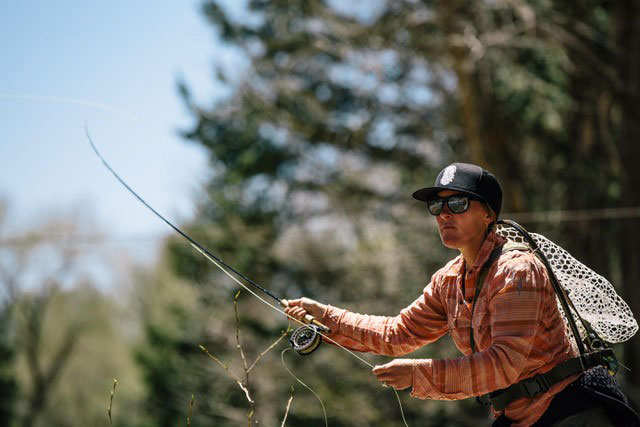
Kara Armano
Angler
“There are just so many amazing sunrises and sunsets in the Rio Grande del Norte National Monument. In fact, the desert has such beautiful light all day long,” says Kara Armano, an angler who has spent much of her adult life camping and fishing in the Upper Rio Grande.
Armano says she usually camps with friends on top of a canyon rim, where the stars are endless at night. Depending on the season, they may wake to the sounds of elk bugling or birds calling. Then, it’s a meandering hike down to the Rio Grande or a tributary to fish all day long.
“This area is so unique because there aren’t a lot of people, so you really can enjoy the landscape and the wildlife. We always see lots of bighorn sheep and snakes and lizards. You go into the monument or the nearby national forests and you can find solitude wherever you go.”
Inspired by her father, Armano started fly-fishing at age 10. She grew up in Wyoming, moved to New Mexico as an adult, and recently relocated to southwestern Colorado.
“I love getting out on the land or on the river whenever I can. It’s a way for me to reconnect with what I love to do. It’s important for my mental well-being. And I like to share that experience with others as well.”
Recently Armano has become very involved with the issue of wildlife connectivity. As a co-founder of Artemis, a women’s hunting, fishing and conservation initiative at the National Wildlife Federation, she is helping to educate other sportswomen about why it’s so important to protect wildlife migration corridors.
“Wildlife need to move. Trout obviously move around in streams and rivers, but wildlife also need to move, for food and breeding. It’s important for genetic diversity and species variability that these various habitats stay connected.”
This summer she will be leading a group of Artemis women on a camping and fishing trip in the Upper Rio Grande region, so that anglers can see first-hand the challenges and opportunities for wildlife connectivity. Armano also serves on a migration task force, helping to advise the Colorado Department of Transportation on ways to make highways and roads safer for humans and wildlife.
“I find that I get so much mentally and spiritually from these lands and waters that it’s important for me to make sure they are protected for future generations to enjoy as well,” says Armano.
